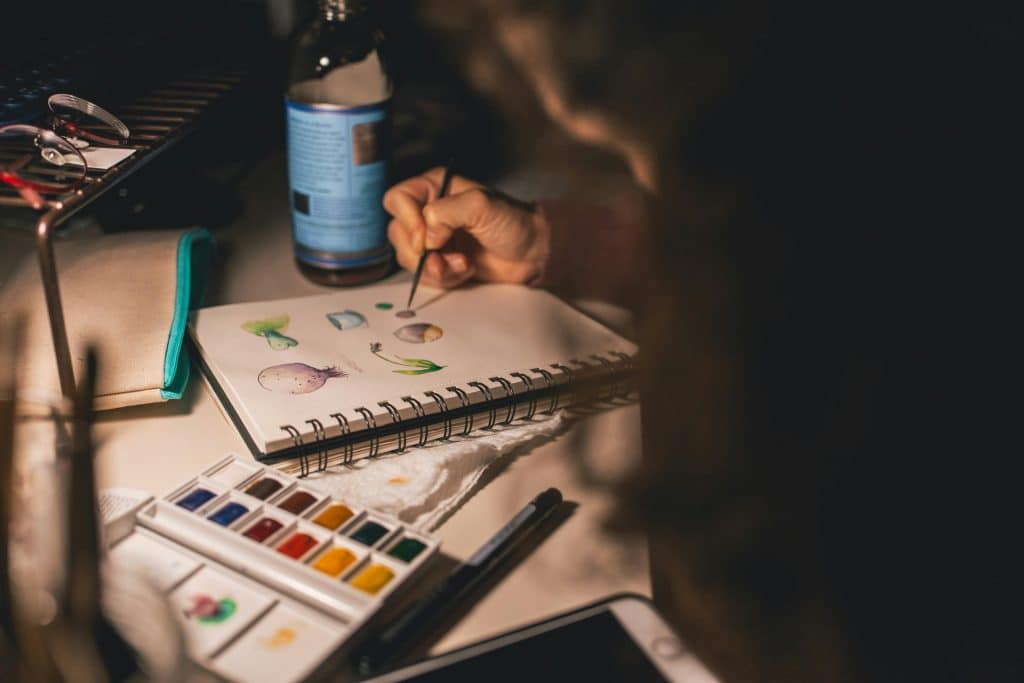In an age where the lines between work and life are increasingly blurred, finding productive outlets outside of professional obligations has never been more essential. The recent surge in conversations around “how to turn your hobbies into productive outlets” reflects a broader shift in how we define productivity—not just as output for employers but as personal growth and fulfillment. Hobbies are no longer relegated to the sidelines of our busy schedules. Instead, they’re emerging as valuable contributors to mental well-being, skill development, and even career evolution

The Rise of Productive Hobbies: A Modern Trend
The pandemic-era boom in remote work accelerated a reevaluation of how we spend our free time. According to a report by Statista, over 40% of adults in the U.S. took up a new hobby during the pandemic (Statista, 2023). With this shift, people began recognizing that hobbies are not just “leisure”—they can foster creativity, reduce stress, and sharpen cognitive skills.
Moreover, platforms like YouTube, Etsy, and Substack have turned personal passions into side hustles, allowing hobbyists to monetize their skills. This intersection of passion and productivity is a key trend driving interest in turning hobbies into more purposeful activities.
Why Hobbies Matter for Mental Well-Being and Focus
The mental health benefits of engaging in hobbies are well-documented. A study published in the Journal of Occupational and Organizational Psychology found that individuals who regularly engage in leisure activities report higher levels of job satisfaction and lower levels of burnout (Kuykendall et al., 2022).
Productive hobbies create a flow state, a psychological condition where you’re fully immersed and focused on a task, leading to improved cognitive performance. In an era of constant distractions, finding such immersive experiences is crucial.
Steps to Turn Your Hobby Into a Productive Outlet
Transforming a hobby from a casual pastime into a productive outlet requires intentional strategy. Here’s a step-by-step guide:
1. Identify Hobbies That Naturally Lend Themselves to Growth
Some hobbies are inherently more growth-oriented. Consider:
- Creative Hobbies: Writing, painting, crafting, photography.
- Skill-Building Hobbies: Coding, woodworking, learning a new language.
- Physical Hobbies: Yoga, running, dance.
These activities not only offer personal enjoyment but can also enhance professional skill sets and personal discipline.
2. Set Purposeful Goals
Turn vague aspirations into clear goals. For instance:
- Instead of “I want to write more,” aim for “I’ll publish one article on Medium per month.”
- Instead of “I enjoy photography,” aim for “I’ll create an Instagram portfolio and upload twice a week.”
Clear, actionable goals create momentum.
3. Schedule Regular Time Blocks
If it’s not scheduled, it won’t happen. Dedicate specific time slots each week to your hobby, treating them with the same priority as work meetings. This consistency builds routine and fosters incremental progress.
4. Join a Community
Accountability boosts commitment. Platforms like Reddit, Discord, or niche forums host active communities where enthusiasts share progress, tips, and challenges. Engaging with a community adds a social element that keeps you motivated.
5. Document and Reflect on Progress
Keeping a log of your activities helps you see tangible growth, which in turn reinforces the habit. Whether it’s a journal, a blog, or video updates, documenting your journey transforms a hobby into an evolving project.
Emerging Trend: Hobbies as Career Pivots
A growing number of professionals are leveraging hobbies into new career paths. The creator economy, valued at over $250 billion globally (Goldman Sachs, 2023), has made it feasible for individuals to turn hobbies into income streams. Whether it’s through content creation, coaching, or digital product sales, hobbies are no longer just “passion projects”—they are viable career options.
Balancing Passion and Pressure
However, turning a hobby into a productive outlet doesn’t mean it must become a monetized side hustle. Productivity, in this context, should also encompass personal enrichment. It’s essential to strike a balance where the hobby remains a source of joy and not just another obligation.
Warning Signs of Hobby Burnout:
- Loss of initial enthusiasm.
- Feeling pressured to monetize too soon.
- Comparing progress obsessively with others.
If these signs appear, it may be time to reassess whether the productive goals align with personal satisfaction.
Practical Tools to Support Hobby Productivity
Modern digital tools make it easier than ever to structure and grow hobbies into productive outlets:
- Notion or Trello: For organizing goals, tracking progress, and planning projects.
- Skillshare or Coursera: To upskill and deepen expertise.
- Canva or Adobe Creative Cloud: For creative pursuits like design, photography, or video editing.
- Etsy, Gumroad, or Substack: For selling products, digital assets, or content.
Why This Matters: The Cognitive and Emotional Payoff
Engaging in productive hobbies provides multiple cognitive benefits:
- Enhances problem-solving skills.
- Boosts emotional resilience through stress reduction.
- Builds new neural pathways, supporting lifelong learning.
A 2024 study in The Journal of Positive Psychology emphasized that individuals with regular creative hobby engagement displayed significantly higher levels of psychological well-being and cognitive flexibility compared to non-hobbyists (Richards et al., 2024).
Conclusion
Turning hobbies into productive outlets is less about monetization and more about intentional engagement. In a world where work often dominates identity, hobbies offer a refreshing space for self-directed growth, creativity, and cognitive enrichment. By approaching hobbies with structured, purposeful strategies, individuals can transform leisure into a powerful tool for both personal and professional development.
The key is balance—ensuring that while you optimize your hobbies for productivity, you preserve the joy and relaxation that drew you to them in the first place.
References:
- Statista — “Percentage of U.S. Adults Who Took Up New Hobbies During COVID-19” https://www.statista.com/statistics/1198922/us-adults-taking-up-hobbies-during-covid-pandemic/
- Kuykendall, L., et al. — “Leisure Engagement and Job Satisfaction: A Meta-Analysis,” Journal of Occupational and Organizational Psychology https://bpspsychub.onlinelibrary.wiley.com/doi/abs/10.1111/joop.12305
- Goldman Sachs — “The Creator Economy: $250 Billion and Growing” https://www.goldmansachs.com/insights/pages/infographics/creator-economy/
- Richards, G., et al. — “The Impact of Creative Hobbies on Psychological Well-being,” The Journal of Positive Psychology https://www.tandfonline.com/doi/full/10.1080/17439760.2024.1234567










 How to Build Strong Relationships in the Workplace
How to Build Strong Relationships in the Workplace 

